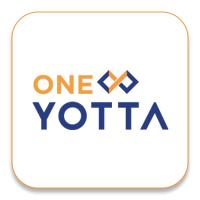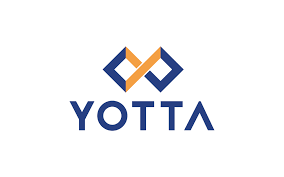Data Center
Data Center
Colocation
What is Colocation Data Center?

Businesses are constantly seeking efficient ways to manage and protect their critical IT infrastructure. Colocation data centers have emerged as a key solution in this endeavor. They are secure facilities provided by third-party providers that offer businesses a range of services, including space to house IT equipment, redundant power and cooling systems, high-speed internet connectivity, and 24/7 monitoring and support.
By choosing colocation, companies can benefit from reduced capital expenses, enhanced disaster recovery capabilities, improved network reliability, and expert infrastructure management. With various reputable providers in the industry, colocation data centers have become a vital solution for businesses seeking efficient and secure IT infrastructure management, freeing them to focus on their core operations while entrusting their critical assets to experts.
What are Colocation Services
Colocation services, commonly known as colo, enable businesses to outsource their data center infrastructure needs to specialised facilities. They provide a secure environment where companies can rent space, power, cooling, and physical security for their IT equipment, such as servers, storage, and networking hardware. Here are some key colocation services:
1. Rack Space Flexibility: Within a colocation data center, businesses have the option to rent rack space or even individual cabinets to house their servers and networking equipment. This flexibility allows companies to scale their infrastructure as needed without the burdensome task of building and maintaining their own data centers.
2. Power and Cooling: Colocation data center providers offer a robust infrastructure with reliable power and advanced cooling systems to ensure that equipment operates optimally. These data centers often incorporate redundant power sources and backup generators to minimise the risk of downtime.
3. Advanced Security Measures: Recognising the paramount importance of safeguarding valuable hardware, colocation data center providers invest heavily in security measures. These measures include biometric access controls, surveillance cameras, and on-site security personnel, among others.
4. Seamless Network Connectivity: Colocation data centers offer high-speed, redundant internet connections and access to multiple internet service providers (ISPs). This diversity in network connectivity ensures a robust and stable environment for operations, minimising the risk of network-related disruptions.
5. 24/7 Monitoring and Support: To ensure uninterrupted operations, the staff provide around-the-clock monitoring and support. They proactively monitor the performance of equipment and swiftly address any issues that may arise.
In essence, colocation services empower businesses to focus on their core operations while entrusting their critical IT infrastructure to specialised colocation data center providers. This outsourcing model not only reduces capital expenditures but also enhances the reliability, security, and scalability of a company’s IT infrastructure.
Benefits of a Colocation Data Center
Colocation data centers offer a range of benefits for businesses seeking efficient and reliable IT infrastructure management:
1. Cost Savings: Building and maintaining an in-house data center involves substantial upfront infrastructure expenses, including construction, cooling, and power systems. In contrast, colocation data center allows businesses to pay only for the space and services they need, reducing capital expenditures and operational costs.
2. Reliability and Redundancy: Colocation data centers are meticulously designed with reliability and redundancy in mind. This means that critical IT equipment is less likely to experience downtime due to power outages or equipment failures. With redundant power sources, backup generators, and professional maintenance, these centers ensure high availability and minimise the risk of disruptions.
3. Effortless IT Infrastructure Expansion: Businesses experience growth and changing infrastructure needs over time. Colocation provides a scalable solution, allowing businesses to expand IT infrastructure easily. Whether one needs to add more servers or increase rack space, colocation data center providers are equipped to accommodate these changes swiftly, without the complexities of expanding an in-house data center.
4. Enhanced Compliance and Regulatory Adherence: Colocation data centers provide a structured environment that aids businesses in adhering to industry-specific regulations and compliance standards more effectively. These facilities often implement rigorous protocols and controls, facilitating audits and ensuring that data handling practices align with legal requirements. This heightened focus on compliance reduces the risk of non-compliance penalties and fosters trust among customers and partners.
5. Extensive Array of Network Providers: Colocation facilities often have multiple high-speed internet connections and access to various network providers. This improves network redundancy and offers businesses a broader range of connectivity options, which is crucial for seamless operations in today’s digital landscape.
6. Professional Management: Colocation centers employ experienced IT professionals who specialize in maintaining data center infrastructure. This expertise ensures efficient and effective management, reducing the burden on in-house IT staff.
Data Center Tier Classifications
Data centers, including colocation facilities, undergo tier classifications to assess their design, redundancy, and reliability, ensuring businesses can choose the right fit for their needs. The Uptime Institute’s tier classification system provides a framework for this purpose:
Tier I: A Tier I data center provides fundamental infrastructure support for IT operations, offering features such as uninterruptible power supplies (UPS), designated IT equipment areas, and engine generators for power backup. While it safeguards against disruptions from human errors, it does not have comprehensive redundancy. Tier I data centers may experience downtime during maintenance or unforeseen issues.
Tier II: Tier II data centers offer an elevated level of infrastructure reliability compared to Tier I, incorporating redundancy measures to enhance uptime. These facilities include redundant capacity components for power and cooling, such as engine generators, energy storage, chillers, UPS modules, and more, providing improved maintenance opportunities and safeguarding against disruptions. Unlike Tier I centers, Tier II data centers can remove and replace these components without shutting down the critical environment, reducing the risk of unexpected service interruptions.
Tier III: Tier III data centers represent a significant advancement in infrastructure reliability compared to Tier I and Tier II counterparts. These facilities are distinguished by their concurrent maintainability and robust redundancy, including redundant distribution paths that serve the critical environment. Unlike Tier I and Tier II, Tier III data centers eliminate the need for shutdowns during equipment maintenance or replacement. This level of redundancy and continuous operation makes Tier III data centers an ideal choice for businesses relying on critical applications and minimal downtime, as they provide a high level of uptime and can handle planned maintenance without service interruptions.
Tier IV: Tier IV data centers can be viewed as the epitome of reliability, offering unparalleled levels of uptime and redundancy that make them an indispensable choice for mission-critical operations. These facilities feature multiple independent and physically isolated systems, acting as redundant capacity components and distribution paths, with the crucial objective of preventing any single event from compromising both systems.
The result is an environment impervious to disruptions, whether they are planned or unplanned, making Tier IV data centers the gold standard for businesses demanding uninterrupted availability and robust disaster recovery capabilities. Tier IV facilities go beyond the already robust Tier III topology by adding fault tolerance to the mix. In the event of equipment failures or interruptions in the distribution path, IT operations remain unaffected, thanks to meticulously designed fault-tolerant power systems.
Moreover, continuous cooling ensures the environment remains stable, further enhancing reliability and ensuring that even under extreme circumstances, Tier IV data centers continue to deliver the highest levels of uptime and protection against service interruptions.
Yotta Colocation Data Center Facilities
Yotta, with its cutting-edge data center facilities strategically located across key regions in India, offers a comprehensive range of colocation services to meet the diverse needs of businesses. Our footprint includes two operational data centers, namely Yotta NM1 in Navi Mumbai, Maharashtra, and Yotta D1 in Greater Noida, Delhi-NCR.
Yotta NM1 stands as our flagship data center, proudly holding the Uptime Institute Tier IV Gold Operations certification. This accolade sets the industry standard for reliability and resilience, ensuring that your critical IT infrastructure is housed in a top-tier facility. Yotta D1, situated within North India’s first hyperscale data center park at the Yotta Greater Noida Data Center Campus, brings our signature performance, world-class infrastructure, and robust connectivity closer to your business. Positioned strategically around major innovation clusters, Yotta D1 is part of a vast network of interconnected colocation data center facilities across India, enabling enterprises to benefit from unrivaled performance, fault-tolerance, uptime, and cost efficiency.
Yotta’s state-of-the-art facilities provide scalable, secure, and reliable physical space equipped with essential features such as power, efficient cooling, advanced fire detection and suppression systems, environmental controls, engineering redundancy, and cost-effective solutions. You can opt for dedicated rack space with customised power configurations or even exclusive suites and rooms to house IT equipment, ensuring adherence to security frameworks and compliance standards. With dedicated floor space, you gain full control over security, cabling, and power management to tailor your colocation services to your specific requirements.
[Also Read: Factors that Determine Colocation Data Center Pricing]




















